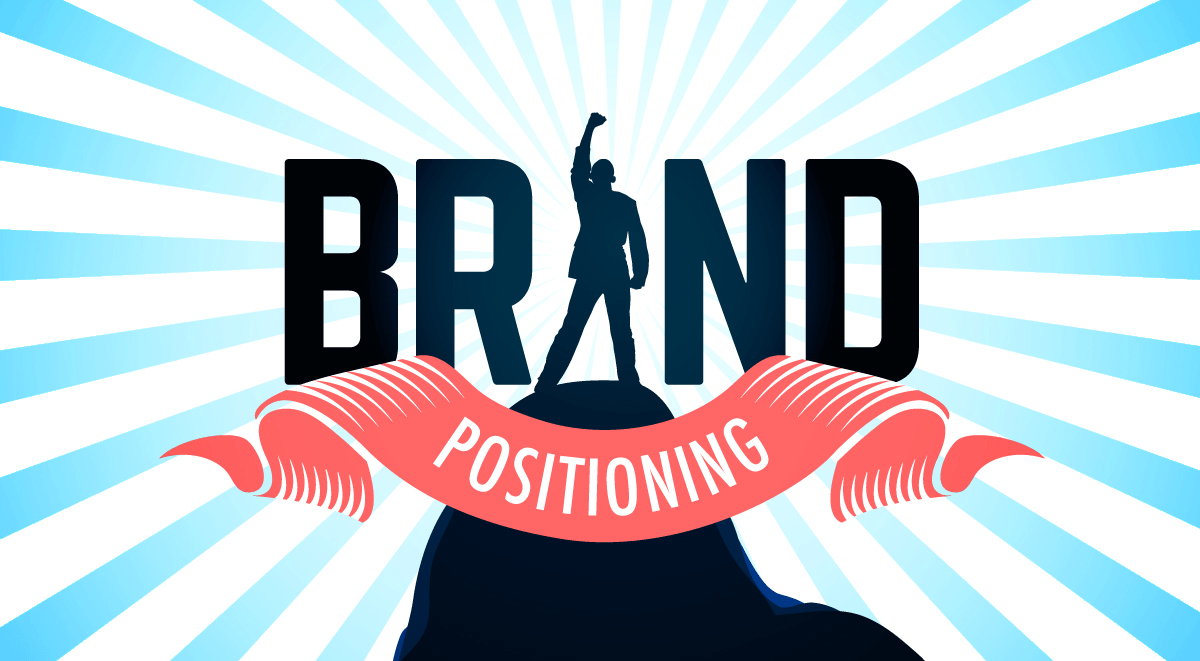
Brand Positioning Research
A strong brand position is a powerful asset for any organization. Your brand position encapsulates why you are different – and better – than the competition. It tells your customers why they should choose to do business with you. It’s short-hand that telegraphs the most critical information about you and cuts through the marketplace clutter to resonate with your customer.
So why are so many companies satisfied with a “me-too” brand position? Let’s look at the classic Brand Positioning Statement for the answer:

Brand Positioning equation
All you have to do is fill in the blanks! Not as easy as it looks, filling in each of those four blanks takes a lot of insight into your marketplace, your customers and prospects, and your competition. And that’s where marketing research comes in.
You shouldn’t attempt to write a brand positioning statement without marketing research. It’s more than likely that you, your co-workers, and certainly your executives, do not have a comprehensive and unbiased view of your marketplace. And that’s what you need to develop a strong brand positioning statement. Here’s how marketing research can help:
• Defining your target market. Do you know who is most likely to benefit from doing business with you? Is it really “purchasing managers in manufacturing companies”? Or is it purchasing managers in a certain size of manufacturer? Or ones that are more concerned about safety than price? Or ones who have trouble complying with regulations? The more detailed your target market definition, the easier your marketing will be!
• Defining your competitive set. Do you know with whom you’re competing? Let’s take a simple example: breakfast bars. Who are their competitors? What else can people choose when they would choose to eat a breakfast bar? Bacon and eggs? Bagels? Cold cereal? How you define your competitive set derives directly from your target market, what’s important to them, and how they make their purchase decisions. And understanding who you are competing with can further simplify your marketing life.
• The unique benefit delivered. Your unique benefit is the heart of brand positioning and is known, for good reason, as “differentiation.” (OK, you may have also heard it called your USP or value proposition, but why complicate things?) How are you different – and better – than the competitive alternatives being considered by your target market? And, by the way, you only get one. That’s right: ONE. No more being all things to all people, you have to choose your most compelling benefit and focus all your messaging around that benefit. But you do lots of things well? Of course, you do. And if you focus on your one point of excellence, customers will assume that you do other things excellently as well. For example, Volvo is known as the safest car. Is it well-engineered? Does it keep its resale value? Most people would agree that Volvo does those things because it is known to be safe. (That’s known as an Umbrella Effect – when you get credit for attributes without even talking about them!)
• Finally, reasons to believe (RTBs). What are the three to five most compelling reasons to believe that you will deliver your unique benefit better than anyone else in the market? Are you the largest? Have you been manufacturing this product longer than anyone else? Are your products winning awards? Can you demonstrate your customers are more satisfied with you than with your competitors? Again, you have to focus, so choose reasons to believe (also called proof points) that resonate with your target market.
Many marketers believe they know their customers well enough to write a Brand Positioning Statement without input from marketing research. Believe me, they don’t. Six weeks after a marketer joins a company, they stop having enough perspective to know their customer without talking to them. (And even if they know their customers, they certainly don’t know their prospects.) So, don’t go it alone. To avoid miss-steps in developing the all-important brand position, take the time to do marketing research and listen to the voice of the customer.
We talked about how a strong brand position makes it easier for customers to choose to do business with your company. However, many people also believe a strong brand position is one of the greatest gifts that businesses can give to themselves. Why? Because strong positions deliver focus, and focus creates efficiency. Once you know your brand position, you know who to market to, with messaging that will resonate with and move them to purchase. You know where to allocate resources to protect, defend, and continually innovate to improve your ownership on your unique differentiation. You know your true competitors, and can focus on what they are doing, letting your business rise above the noise in your marketplace (and keep an eye out for those companies who will be your competitors in the future.)
So think about it. How strong is your brand position?
